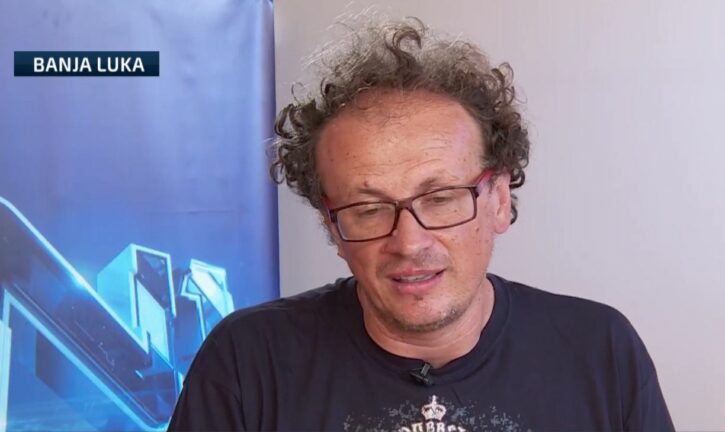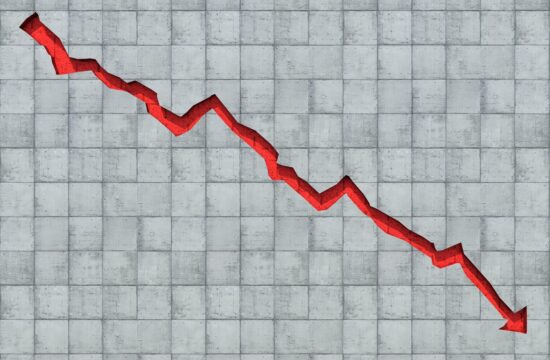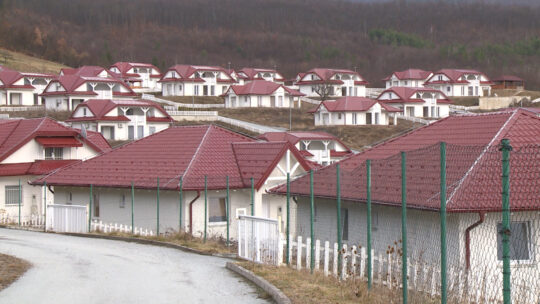
Bosnia’s political elite is trying to destroy a common Bosnian identity and impose on the country’s citizens and exclusive Bosniak, Croat and Serb ethnic identity as the primary concept, psychologist Srdjan Puhalo told N1 on Thursday.
“They are so trained that when they speak of their identity, that is the first thing that comes up,” Puhalo said.
“Apart from the ethnic, it is also the religious identity – the two often overlap – that is the primary issue, because being a Serb, Croat or Bosniak opens doors for them which would not open if one would identify himself only as, for example, doctor, citizen of Gorazde, or anything else,” Puhalo said.
Bosnian citizens intentionally choose the identity which brings them the most benefits, he said.
Politics determine what makes Bosnia a discriminatory country toward other identities and ethnic groups, apart from the three major ones, he said, adding that courts have ruled that this has to change but that it nevertheless stays the same.
“This all began in the 1980s and at the beginning of the 1990’s when everyone suddenly began remembering their ethnic identity and when all Yugoslavs became Bosniaks, Serbs and Croats and then the war came and strengthened it further and banalised the concept of identity, then the Dayton Peace Agreement came which said that a minister cannot be a member of another ethnic group and that is the dominant discussion in Bosnia today,” Puhalo explained.
He said that one particular thing should be cleared up – “the ethnic identity of Serb, Croat, Bosniak is one thing, but there is also the state-level identity and that identity does not have to be in opposition to whether you are a Bosniak, a Croat or a Serb, although our political elite wants it to be.”
He gave the example of black members of the French national soccer team declaring that they are French, “although we know their ancestors came from Tunisia, Algeria, etc.” He also gave the example of Turks who play in Germany’s national soccer team who say they are German, “and that is something completely normal in decent states.”
But in Bosnia, he said, “that is something unacceptable, something bad for you and your family.”
Puhalo argued that such a setup is detrimental to individuals and pointed out that identity is not something we choose, but is assigned to us.
He said that during the war in the 1990s, some did not feel like members of any one of the three groups in Bosnia and that they would be targeted because of that.
“They (political leaders) gave us those identities and they didn’t leave us the possibility to see how important those identities are to us,” he said.
The psychologist gave the example of ‘mixed marriages’ – marriages between people of different ethnic groups.
“What is the child if the father is a Serb, while the mother is a Croat or Bosniak?” he asked, adding that those people would be assigned an identity they may not agree with.
“A person who might want to become a good programmer, a good doctor, or has any other interests, then leaves for a foreign country and tries to go do what he wants in a society which will allow him to cherish his identity which is important to him and not to the society he lives in,” he said.
But will people in Bosnia ever accept a common identity?
Puhalo said there are two issues to take into account.
“On the one hand, there are people who call themselves Bosnians and Herzegovinians and have no problem also being Serbs, Bosniaks and Croats, and that is a thorn in the side for our politicians because they want to destroy that Bosnian identity,” he said.
He reminded of the campaign ahead of the 2013 census, when Bosniak parties called upon citizens to declare they are Bosniaks, not Bosnians.
“On the other hand, as soon as you cross the Sava or Drina river (Bosnia’s natural borders), rarely anyone there will say you are a Serb, Croat or Bosniak – it is easiest for them to say you are a Bosnian and Herzegovinian,” he argued, adding that at this point one loses his Bosniak, Serb or Croat identity.
“I believe there will be Bosnians and Herzegovinians, but it is a slow process, not because people don’t want it, but because our political elites, together with religious elites, simply do not allow for such an identity to be formed and strengthened among the citizens of Bosnia,” he said.
Puhalo argued that there is a “systematic battle against a Bosnian identity.”
“I’m afraid that we have another problem – that those Bosnians and Herzegovinians will become what they want when they go and work in Slovenia, Austria, Germany, as there that ethnic narrative becomes less important,” because those places are out of “reach” to Bosnia’s political leaders.



